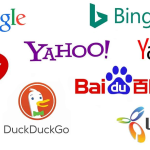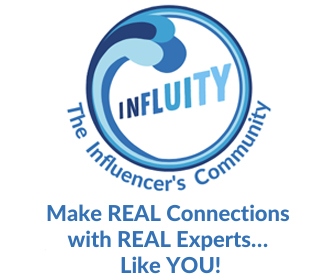Plus: NBC cuts tie with Ronna McDaniel after internal backlash, sportsbooks join forces to combat problem gambling.
There are more questions than answers following the Francis Scott Key Bridge collapse in Baltimore Tuesday. Authorities say six workers who were filling potholes at the time of the collapse are likely dead and that the container ship that struck the bridge lost power just before the disaster. Beyond that, the door is open for people to speculate on who is to blame for this tragedy.
According to The Wall Street Journal, investigators will look into whether contaminated fuel led to the power failure that caused the ship to strike the bridge. Jennifer Homendy, chair of the National Transportation Safety Board, said that the board planned to inspect the safety records of both the ship and the ship’s owner and operator. “This is a team effort,” said Homendy. “There are a lot of entities right now in the command post.”
Maryland Governor Wes Moore also commended the first responders who stopped traffic on the bridge with their swift communication. “I have to say I’m thankful for the folks who – once the warning came up and once the notification came up that there was a mayday – who, literally by being able to stop cars from coming over the bridge, these people are heroes. They saved lives last night,” Moore said according to Fox Baltimore.
Why it matters: There a few lessons communicators can take away from the tragedy in Maryland. First, in a crisis situation, the public often looks for someone to blame. The NTSB’s handling of the situation (and they’ve been busy with the whole slate of Boeing issues lately) shows a commitment to getting to the bottom of the problem, and in a world in which conspiracy theories and misinformation can run wild on the internet, that’s no small job. That might not bode so well for the container ship’s owners, operators, or manufacturers in the long run.
Additionally, local leadership in Maryland stepped up to the occasion as well. Having Maryland Moore on the scene hours after the collision to both back up the efforts of first responders and to also debunk any speculation over nefarious causes of the collapse shows a strong commitment to proper leadership communications. In the face of a disaster, strong, stabilizing leadership serves to both help quell fears and as a side benefit, protect the brand of Baltimore and Maryland as a safe place to live and do business.
This will be a long-term battle for the city, the state and the country. Baltimore is a major port and its closure will have ripple effects for months and years to come. Keeping an eye on clear, timely communication will help ease this awful situation.
Editor’s Top Reads:
- Only a few days after she was hired at NBC News, former Republican National Committee chair Ronna McDaniel is out. The decision came after numerous on-air personalities at NBC and its affiliates harshly criticized the hiring over McDaniel’s attacks on the media and role in attempting to overturn the 2020 election, according to CNN. “There is no doubt that the last several days have been difficult for the News Group,” NBCUniversal News Group President Cesar Conde said in a memo to staff. “After listening to the legitimate concerns of many of you, I have decided that Ronna McDaniel will not be an NBC News contributor. I want to personally apologize to our team members who felt we let them down,” Conde continued. “While this was a collective recommendation by some members of our leadership team, I approved it and take full responsibility for it.” Sometimes leaders might make mistakes — but Conde’s ability to listen to his staff and right the wrong choice shows decent awareness of the situation. NBC was lambasted in recent days by critics – many of them on their own payroll– of the decision to bring McDaniel on given her track record, and this was likely the only move possible to right the ship for the Peacock’s news brand.
- If you’re a sports fan (or you just watch enough TV), you’ve probably seen advertisements for sports betting. Since its ban in the U.S. was struck down in 2018, it’s seemingly everywhere. But with the ease of access through mobile apps, there were bound to be issues with problem gambling. That’s why the seven largest sportsbooks in the country are joining forces to share information about problem gamblers, according to CNBC. “I’m incredibly excited to move this forward and to really do some impactful things and to really expand the knowledge through the research and to create these evidence-based best practices and to really empower players with information,” said Jennifer Shatley, executive director of the Responsible Online Gaming Association. Sportsbooks are now an embedded part of the sports viewing experience, whether fans like it or not. The major sports leagues, particularly in the wake of the Shohei Ohtani betting scandal, need to refine their relationships with gambling. Otherwise, the brands might take a hit in the longer term for pushing betting to the detriment of some fans.
- Two of America’s most popular fast foods are teaming up. According to ABC News, McDonald’s and Krispy Kreme partnered to bring the iconic sweet treats to the Golden Arches across the country by 2026. “The top request we receive from consumers, every day, is, ‘Please bring Krispy Kreme to my town.’ Partnering with McDonald’s on a national scale will provide our fans and doughnut lovers unprecedented daily access to fresh doughnuts and the joy that is Krispy Kreme,” Krispy Kreme CEO Josh Charlesworth said. Even if your brand is an American mainstay, it often doesn’t hurt to keep things fresh and always evolving, and collaborations help do that. This partnership doesn’t just stand to garner positive chatter among fans, it also serves to drive sales, particularly for customers who don’t have a Krispy Kreme location nearby. Sometimes teamwork does make the dream (or Kreme) work. It’ll be interesting to see if any of Krispy Kreme’s unique marketing strategies (like discounted donuts on Leap Day this year) carry over to the McDonald’s partnership. Even the biggest of brands can use new marketing tactics to keep sales moving.
Sean Devlin is an editor at Ragan Communications. In his spare time he enjoys Philly sports and hosting trivia.
The post The Scoop: The communications fallout of the Baltimore bridge collapse appeared first on PR Daily.













